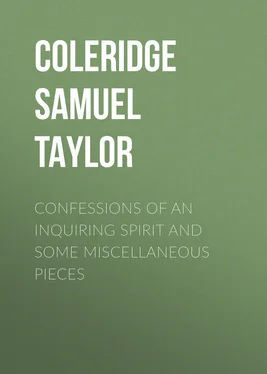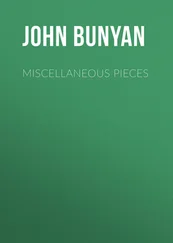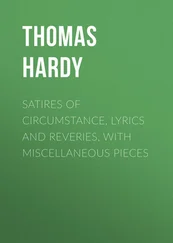Samuel Coleridge - Confessions of an Inquiring Spirit and Some Miscellaneous Pieces
Здесь есть возможность читать онлайн «Samuel Coleridge - Confessions of an Inquiring Spirit and Some Miscellaneous Pieces» — ознакомительный отрывок электронной книги совершенно бесплатно, а после прочтения отрывка купить полную версию. В некоторых случаях можно слушать аудио, скачать через торрент в формате fb2 и присутствует краткое содержание. Жанр: foreign_prose, foreign_religion, Философия, foreign_psychology, foreign_antique, на английском языке. Описание произведения, (предисловие) а так же отзывы посетителей доступны на портале библиотеки ЛибКат.
- Название:Confessions of an Inquiring Spirit and Some Miscellaneous Pieces
- Автор:
- Жанр:
- Год:неизвестен
- ISBN:нет данных
- Рейтинг книги:4 / 5. Голосов: 1
-
Избранное:Добавить в избранное
- Отзывы:
-
Ваша оценка:
- 80
- 1
- 2
- 3
- 4
- 5
Confessions of an Inquiring Spirit and Some Miscellaneous Pieces: краткое содержание, описание и аннотация
Предлагаем к чтению аннотацию, описание, краткое содержание или предисловие (зависит от того, что написал сам автор книги «Confessions of an Inquiring Spirit and Some Miscellaneous Pieces»). Если вы не нашли необходимую информацию о книге — напишите в комментариях, мы постараемся отыскать её.
Confessions of an Inquiring Spirit and Some Miscellaneous Pieces — читать онлайн ознакомительный отрывок
Ниже представлен текст книги, разбитый по страницам. Система сохранения места последней прочитанной страницы, позволяет с удобством читать онлайн бесплатно книгу «Confessions of an Inquiring Spirit and Some Miscellaneous Pieces», без необходимости каждый раз заново искать на чём Вы остановились. Поставьте закладку, и сможете в любой момент перейти на страницу, на которой закончили чтение.
Интервал:
Закладка:
With such purposes, with such feelings, have I perused the books of the Old and New Testaments, each book as a whole, and also as an integral part. And need I say that I have met everywhere more or less copious sources of truth, and power, and purifying impulses, that I have found words for my inmost thoughts, songs for my joy, utterances for my hidden griefs, and pleadings for my shame and my feebleness? In short, whatever finds me, bears witness for itself that it has proceeded from a Holy Spirit, even from the same Spirit, which remaining in itself , yet regenerateth all other powers , and in all ages entering into holy souls , maketh them friends of God , and prophets . (Wisd. vii.) And here, perhaps, I might have been content to rest, if I had not learned that, as a Christian, I cannot, must not, stand alone; or if I had not known that more than this was holden and required by the Fathers of the Reformation, and by the Churches collectively, since the Council of Nice at latest, the only exceptions being that doubtful one of the corrupt Romish Church implied, though not avowed, in its equalisation of the Apocryphal Books with those of the Hebrew Canon, and the irrelevant one of the few and obscure sects who acknowledge no historical Christianity. This somewhat more, in which Jerome, Augustine, Luther, and Hooker were of one and the same judgment, and less than which not one of them would have tolerated—would it fall within the scope of my present doubts and objections? I hope it would not. Let only their general expressions be interpreted by their treatment of the Scriptures in detail, and I dare confidently trust that it would not. For I can no more reconcile the doctrine which startles my belief with the practice and particular declarations of these great men, than with the convictions of my own understanding and conscience. At all events—and I cannot too early or too earnestly guard against any misapprehension of my meaning and purpose—let it be distinctly understood that my arguments and objections apply exclusively to the following doctrine or dogma. To the opinions which individual divines have advanced in lieu of this doctrine, my only objection, as far as I object, is—that I do not understand them. The precise enunciation of this doctrine I defer to the commencement of the next Letter.
Farewell.LETTER II
My Dear Friend,
In my last Letter I said that in the Bible there is more that finds me than I have experienced in all other books put together; that the words of the Bible find me at greater depths of my being; and that whatever finds me brings with it an irresistible evidence of its having proceeded from the Holy Spirit. But the doctrine in question requires me to believe that not only what finds me, but that all that exists in the sacred volume, and which I am bound to find therein, was—not alone inspired by, that is composed by, men under the actuating influence of the Holy Spirit, but likewise—dictated by an Infallible Intelligence; that the writers, each and all, were divinely informed as well as inspired. Now here all evasion, all excuse, is cut off. An infallible intelligence extends to all things, physical no less than spiritual. It may convey the truth in any one of the three possible languages—that of sense, as objects appear to the beholder on this earth; or that of science, which supposes the beholder placed in the centre; or that of philosophy, which resolves both into a supersensual reality. But whichever be chosen—and it is obvious that the incompatibility exists only between the first and second, both of them being indifferent and of equal value to the third—it must be employed consistently; for an infallible intelligence must intend to be intelligible, and not to deceive. And, moreover, whichever of these three languages be chosen, it must be translatable into truth. For this is the very essence of the doctrine, that one and the same intelligence is speaking in the unity of a person; which unity is no more broken by the diversity of the pipes through which it makes itself audible, than is a tune by the different instruments on which it is played by a consummate musician, equally perfect in all. One instrument may be more capacious than another, but as far as its compass extends, and in what it sounds forth, it will be true to the conception of the master. I can conceive no softening here which would not nullify the doctrine, and convert it to a cloud for each man’s fancy to shift and shape at will. And this doctrine, I confess, plants the vineyard of the Word with thorns for me, and places snares in its pathways. These may be delusions of an evil spirit; but ere I so harshly question the seeming angel of light—my reason, I mean, and moral sense in conjunction with my clearest knowledge—I must inquire on what authority this doctrine rests. And what other authority dares a truly catholic Christian admit as coercive in the final decision, but the declarations of the Book itself—though I should not, without struggles, and a trembling reluctance, gainsay even a universal tradition?
I return to the Book. With a full persuasion of soul respecting all the articles of the Christian Faith, as contained in the first four classes, I receive willingly also the truth of the history, namely, that the Word of the Lord did come to Samuel, to Isaiah, to others; and that the words which gave utterance to the same are faithfully recorded. But though the origin of the words, even as of the miraculous acts, be supernatural, yet the former once uttered, the latter once having taken their place among the phenomena of the senses, the faithful recording of the same does not of itself imply, or seem to require, any supernatural working, other than as all truth and goodness are such. In the books of Moses, and once or twice in the prophecy of Jeremiah, I find it indeed asserted that not only the words were given, but the recording of the same enjoined by the special command of God, and doubtless executed under the special guidance of the Divine Spirit. As to all such passages, therefore, there can be no dispute; and all others in which the words are by the sacred historian declared to have been the Word of the Lord supernaturally communicated, I receive as such with a degree of confidence proportioned to the confidence required of me by the writer himself, and to the claims he himself makes on my belief.
Let us, therefore, remove all such passages, and take each book by itself; and I repeat that I believe the writer in whatever he himself relates of his own authority, and of its origin. But I cannot find any such claim, as the doctrine in question supposes, made by these writers, explicitly or by implication. On the contrary, they refer to other documents, and in all points express themselves as sober-minded and veracious writers under ordinary circumstances are known to do. But perhaps they bear testimony, the successor to his predecessor? Or some one of the number has left it on record, that by special inspiration he was commanded to declare the plenary inspiration of all the rest? The passages which can without violence be appealed to as substantiating the latter position are so few, and these so incidental—the conclusion drawn from them involving likewise so obviously a petitio principii , namely, the supernatural dictation, word by word, of the book in which the question is found (for, until this is established, the utmost that such a text can prove is the current belief of the writer’s age and country concerning the character of the books then called the Scriptures)—that it cannot but seem strange, and assuredly is against all analogy of Gospel revelation, that such a doctrine—which, if true, must be an article of faith, and a most important, yea, essential article of faith—should be left thus faintly, thus obscurely, and, if I may so say, obitaneously , declared and enjoined. The time of the formation and closing of the Canon unknown;—the selectors and compilers unknown, or recorded by known fabulists;—and (more perplexing still) the belief of the Jewish Church—the belief, I mean, common to the Jews of Palestine and their more cultivated brethren in Alexandria (no reprehension of which is to be found in the New Testament)—concerning the nature and import of the θεοπνευστία attributed to the precious remains of their Temple Library;—these circumstances are such, especially the last, as in effect to evacuate the tenet, of which I am speaking, of the only meaning in which it practically means anything at all tangible, steadfast, or obligatory. In infallibility there are no degrees. The power of the High and Holy One is one and the same, whether the sphere which it fills be larger or smaller;—the area traversed by a comet, or the oracle of the house, the holy place beneath the wings of the cherubim;—the Pentateuch of the Legislator, who drew near to the thick darkness where God was, and who spake in the cloud whence the thunderings and lightnings came, and whom God answered by a voice; or but a letter of thirteen verses from the affectionate Elder to the elect lady and her children , whom he loved in the truth . But at no period was this the judgment of the Jewish Church respecting all the canonical books. To Moses alone—to Moses in the recording no less than in the receiving of the Law—and to all and every part of the five books called the Books of Moses, the Jewish doctors of the generation before, and coëval with, the apostles, assigned that unmodified and absolute theopneusty which our divines, in words at least, attribute to the Canon collectively. In fact it was from the Jewish Rabbis—who, in opposition to the Christian scheme, contended for a perfection in the revelation by Moses, which neither required nor endured any addition, and who strained their fancies in expressing the transcendency of the books of Moses, in aid of their opinion—that the founders of the doctrine borrowed their notions and phrases respecting the Bible throughout. Remove the metaphorical drapery from the doctrine of the Cabbalists, and it will be found to contain the only intelligible and consistent idea of that plenary inspiration, which later divines extend to all the canonical books; as thus:—“The Pentateuch is but one Word , even the Word of God; and the letters and articulate sounds, by which this Word is communicated to our human apprehensions, are likewise divinely communicated.”
Читать дальшеИнтервал:
Закладка:
Похожие книги на «Confessions of an Inquiring Spirit and Some Miscellaneous Pieces»
Представляем Вашему вниманию похожие книги на «Confessions of an Inquiring Spirit and Some Miscellaneous Pieces» списком для выбора. Мы отобрали схожую по названию и смыслу литературу в надежде предоставить читателям больше вариантов отыскать новые, интересные, ещё непрочитанные произведения.
Обсуждение, отзывы о книге «Confessions of an Inquiring Spirit and Some Miscellaneous Pieces» и просто собственные мнения читателей. Оставьте ваши комментарии, напишите, что Вы думаете о произведении, его смысле или главных героях. Укажите что конкретно понравилось, а что нет, и почему Вы так считаете.












